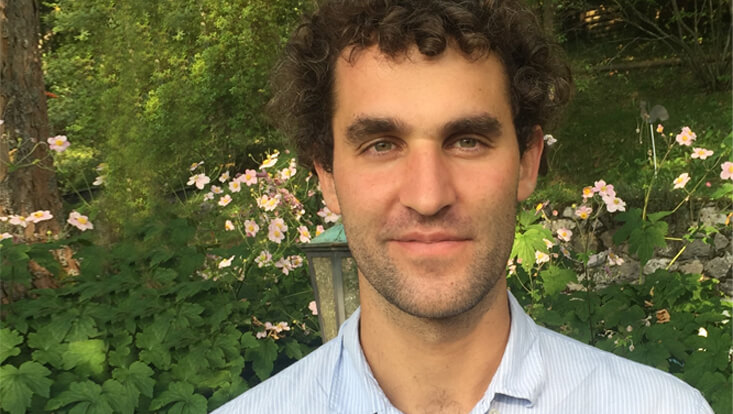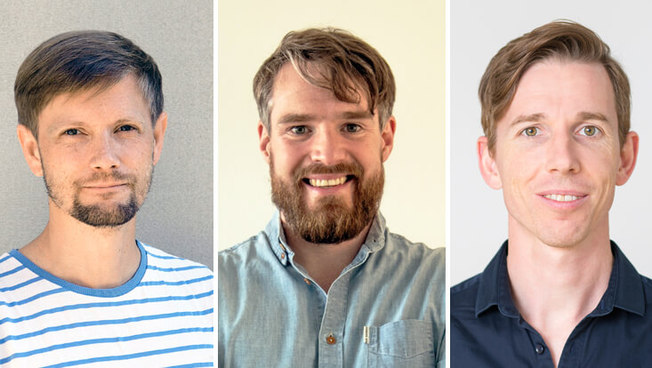Funding for outstanding young researchersERC Starting Grant: Quantum technology project begins
24 September 2020, by Ingeborg Adler

Photo: Cleo Moisan
Supporting outstanding young scientists with innovative projects in basic research - that is the goal of the so-called Starting Grants of the European Research Council. Since 1 September physicist Dr. Guillaume Salomon has been using such an ERC grant to investigate fundamental aspects of quantum many-body physics that are of particular interest for future quantum technologies.
Quantum technologies are extremely versatile: Quantum sensors can warn of earthquakes, quantum cryptography can protect our privacy in the long term, and quantum computers with their huge amounts of data will revolutionize the computer world. One of the central milestones on the way to the realization of quantum computers is the realization of fault-tolerant quantum computations.
With his acquired funding, Dr. Guillaume Salomon wants to develop a novel platform for quantum simulation and quantum computation. The planned platform uses ultracold atoms that can be transformed into highly excited Rydberg states by laser pulses. Rydberg atoms are particularly sensitive to electric and magnetic fields due to their large size and large number of closely spaced energy levels. In the Rydberg state, the atoms couple strongly with each other, whereas in the ground state they are excellently isolated from the environment and can be stored. The planned apparatus will be used to construct and study topological phases of matter that are of interest for fault-tolerant quantum computation.
Dr. Guillaume Solomon's work, which is supported by the European Research Council (ERC) with €1.5 million, perfectly complements the goals of Research Area A of the Cluster of Excellence “CUI: Advanced Imaging of Matter” for the design of novel quantum functionalities. In addition, there are direct opportunities for cooperation with solid-state physics and theoretical physics.
Young Investigator Group Leader
The scientist has been at the Institute of Laser Physics at Universität Hamburg since 1 August 2020 and is one of the first so-called Young Investigator Group Leaders in the Cluster of Excellence. These positions were newly introduced as part of the Cluster's promotion of young researchers. The target group are highly talented young scientists with the ability to independently conduct their own challenging research projects and to obtain or have already obtained their own funding at the level of Emmy Noether Groups or ERC Starting Grants.
The scientists are individually supported by the cluster with a development program on their scientific career and are assigned to a so-called host. "It is fantastic that the University of Hamburg and the Cluster of Excellence have been able to attract such an excellent young researcher. This will strengthen research in the field of quantum technologies in the long term, and I am very much looking forward to working with Guillaume,” says Prof. Dr. Henning Moritz from the Institute of Laser Physics, who will take on the role of host.
Additional information
Dr. Guillaume Salomon obtained his doctorate from the Institut d'Optique of the University of Paris Saclay, France, in the group of Prof Alain Aspect and subsequently did postdoctoral research at the Max Planck Institute for Quantum Optics in the group of Prof Immanuel Bloch in Munich. He is an expert in the investigation of strongly correlated fermionic quantum systems by means of quantum gas microscopy, a breakthrough technique he developed as a postdoc. The ERC Starting Grant is titled "FLATBANDS, Exploring strong correlations in flat bands” and has received funding from the European Research Council (ERC) under the European Union’s Horizon 2020 research and innovation programme (grant agreement No 852236).

